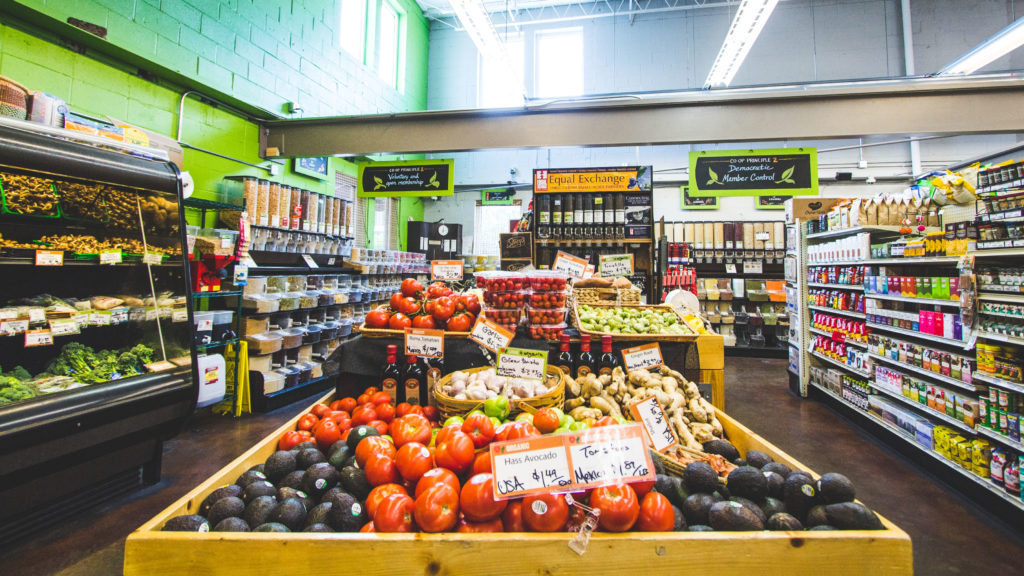Teaching your staff and customers how to get the most value from the produce they buy

If you are like most Americans, your shopping patterns – as well as your customers’ habits – have changed drastically in the past several weeks. More people are buying fresh produce to stay healthy, and for good reason: a diet that includes lots of fresh organic produce is a great way to keep your immune systems strong in these uncertain times.
Given all that fresh produce-buying, of course it results in the need for more produce management at home. Like many of us, your customers have probably found yellowing broccoli or wilted lettuce in their refrigerator, or a too-ripe banana or moldy orange in the fruit bowl. In the past, we may not have given it a whole lot of thought once it’s been tossed in the compost bin – but times have changed, and we need to make every dollar count in these difficult economic conditions.
So, what’s the solution?
First off, knowing how to store produce properly can make a huge difference in shelf life. For longer life, tell them to keep their produce whole! As soon as you start pulling fruits and vegetables apart – this can be as little as pulling a stem off an apple – you’ve damaged cells, and microorganisms that can cause spoilage start to grow.
Secondly, it’s important to keep fruits and veggies at the right temperature. Cold-sensitive fruits and veggies lose flavor and moisture at low temperatures. Produce such as organic mangoes, avocados, tomatoes, nectarines, and peaches fall into this category.
Cold-sensitive produce should be stored on the counter, not in the refrigerator. Once these items have ripened, then they can be put in the refrigerator for a couple of days to help them last. When you’re ready to eat them, return them to room temperature first to ensure the best flavor.
A common rule is to never refrigerate potatoes, onions, winter squash, or garlic. These are best kept in a cool, dark, dry cabinet, and they can last up to a month or more. (But keep them separated so their flavors and smells don’t migrate!)
There is an exception to this with organic potatoes in the early spring, when we still may be eating last year’s storage potatoes. If that’s the case and the new crop has not come in yet, it is best to store them in the fridge to keep them from sprouting, as organic potatoes – unlike conventional potatoes – are not allowed to have toxic sprout inhibitors applied post-harvest. You can let your customers know when new potatoes come into season.
Another important part of a produce preservation routine is developing an understanding of ethylene gas. Nearly all fruits emit some ethylene, but what is it, and what does it do?
Ethylene is a naturally occurring gas that speeds ripening and can lead to premature spoilage. You won’t see it or smell it, but it is constantly being released. If your produce breaks down in just a few days, chances are you are storing fruits and vegetables incorrectly.
Here are some basic tips for managing produce ethylene exposure.
Refrigerate these gas releasers: Organic Apples, Apricots, Cantaloupe, Figs and Honeydew melon
Don’t refrigerate these gas releasers, as they are cold-sensitive: Organic Avocados, Bananas, (unripe) Nectarines, Peaches, Pears, Plums, Tomatoes
Keep these away from all gas releasers: Organic Bananas, ripe, Broccoli, Brussels sprouts, Cabbage, Carrots, Cauliflower, Cucumbers, Eggplant, Lettuce and other leafy greens, Parsley, Peas, Peppers, Squash, Sweet potatoes.
It’s also best to keep refrigerated fruits and vegetables in separate areas from each other!
Finally, suggest an eating plan. Remind them to use your more perishable items first and save heartier items for later in the week – or better yet, plan some meals around the produce they buy!
As you can see, paying attention to how you and your customers store your produce and monitoring the ripeness can have positive results. Though it may be a little more effort, it will certainly be worth the time. Every little step taken can give them more produce to enjoy and keep more money in their wallet!
Be well, be kind, and remember to take a moment to reflect on how blessed we are to have the bounty of organic produce to choose from for ourselves, our customers and our communities.
Have more questions?
Get in touch with one of our consultants.

